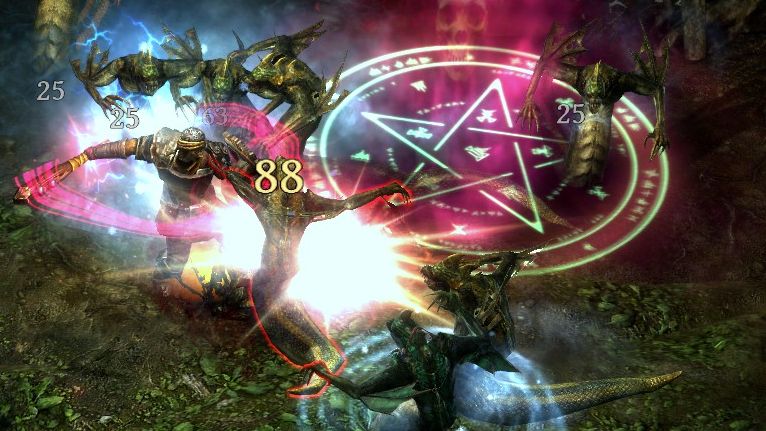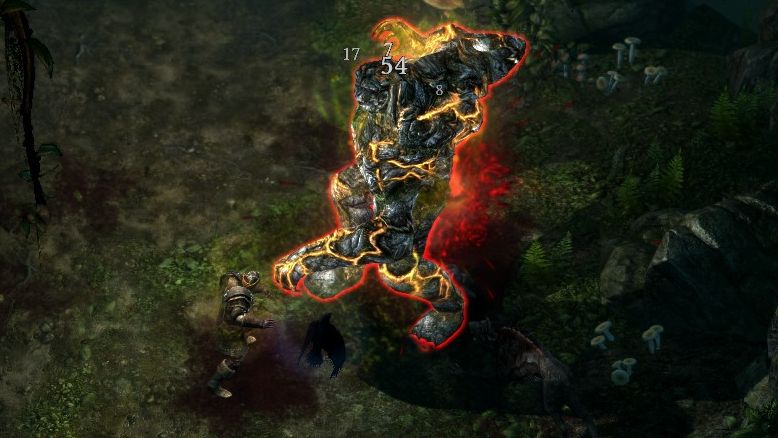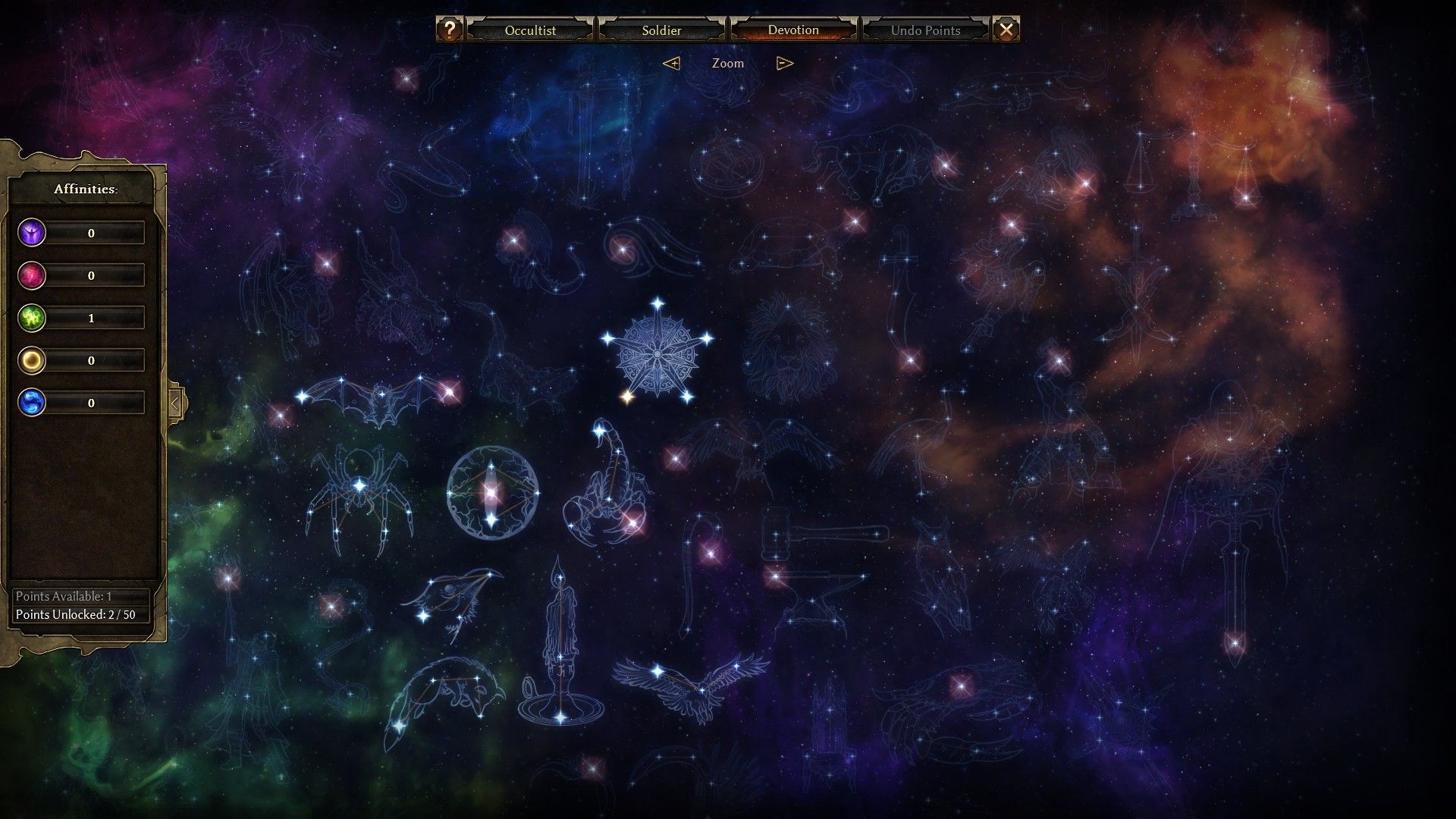Why I love multi-classing in RPGs
Multi-talented heroes can be more fun than specialists.

In Why I Love, PC Gamer writers pick an aspect of PC gaming that they love and write about why it's brilliant. This week, Tom puts points into his secondary chin-stroking class and plays a bunch of Grim Dawn.
Have you ever experienced specialisation anxiety? You're playing an RPG as a single character, and the game gives you lots of ways to develop your hero. So far, so good. But! Only a couple of hours in you're forced to make important choices about your skill path. Will you become a choppy close combat hero, or a shooty hero? Will you choose magic or brute force? Make your choice now, or go away and play something else.
Once you've chosen a route, you're probably committed to it. Even in systems that let you climb skill trees incrementally by spending points, the desire for maximum efficiency incentivises you to rally around your early expenditure and push toward the extremes of your chosen path. If the path isn't to your taste, what then?
It's an interesting problem, because we expect choice from upgrade systems. When Diablo 3 moved to a flat skill system that let you collect and swap in abilities at will, some felt that an important element of the RPG had been removed. Picking skills and spending attribute points let you personalise your avatar, establish a role and shape the game experience to your interests.

The problem with skill trees and class choices is that they force you to make an important decision from an uneducated position. In a new action RPG you don't know if area-of-effect spells will be more useful than individual attacks because you don't know how many horde situations the game will challenge you with. You don't know whether poison effects will do enough damage to make poison skills relevant throughout the game. From a position of intense ignorance, you have to guess in a general direction—'I guess fireballs might be fun?'.
Multi-classing helps by giving players an extra layer of experimentation. After a certain progression point, you gain access to a second skill tree, or a new flavour of abilities that overlap with your original choice. It's a useful course-correction tool—'fireballs are okay, but having actually had a chance to see how the game's systems work, let's go for poison after all'.
Multi-class upgrade systems also disrupt the strength vs. intelligence relationship that RPGs repeat endlessly. If you want to swing a big sword, you're normally encouraged to increase your strength stat at the expense of intelligence and dexterity stats, traditionally associated with spellcasting and rogue skills respectively. This forcibly creates the same fantasy warrior archetypes over and over again: the idiot barbarian with muscles for brains; the wizard that can barely lift their own tomes; the cunning rogue who dies a lot.
Multi-classing means that you have the option to spread your resources around a little, to create contradictory builds that are quirky and fun. Grim Dawn is good at this. It's a dark action RPG from Crate Entertainment. I start out as an occultist. That gives me a couple of nice summons (crackling lightning bird and weak exploding fire dog). He can also suck away enemy life force with a glyph, and throw poisonous eyeballs around. He's a wizard gone bad, but can also swing around a double-handed sword quite ably. At level 10, I realise that I enjoy the big melee weapons more than ranged attacks, so I select 'soldier' as my second class and create a hybrid mage-o-warrior, and then use my occult ability to imbue melee weapons with psychic oomph. Synergy!
Keep up to date with the most important stories and the best deals, as picked by the PC Gamer team.

Grim Dawn goes further still with an extra layer of 'Devotion' boons that let you compensate for any weaknesses your bizarre combination of classes might throw up. I occasionally fall a little low on health in fights with powerful enemies, so I've invested in a little life-steal.
It's not perfect. I still worry that my decisions have locked off the most fun way to play the game, and I worry that my particular choice won't take me through the game's toughest challenges. There are always re-roll mechanics for drastic circumstances. It's a bad moment, though. Re-rolls make me feel as though I've broken the integrity of the game. I have failed, and now I'm cheating. At least multi-classing presents an extra barrier to that ugly solution, and gives you several chances to find the fun hidden away in RPG's impenetrable skill trees.
Part of the UK team, Tom was with PC Gamer at the very beginning of the website's launch—first as a news writer, and then as online editor until his departure in 2020. His specialties are strategy games, action RPGs, hack ‘n slash games, digital card games… basically anything that he can fit on a hard drive. His final boss form is Deckard Cain.


